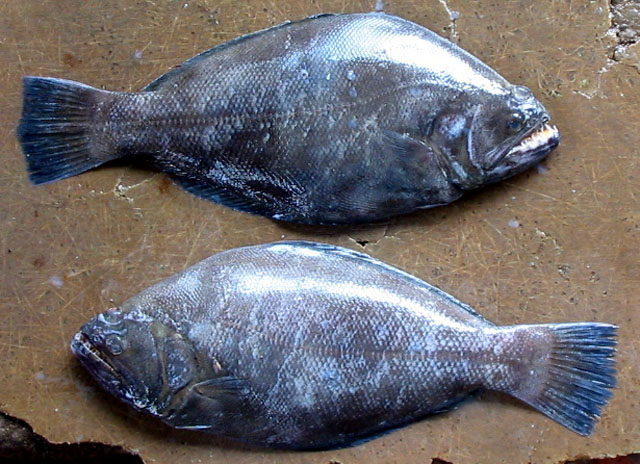| Psettodidae (Psettodids) |
| 64 cm TL (male/unsexed); max.weight: 9,000.0 g |
|
demersal; marine; depth range 1 - 100 m |
| Indo-West Pacific: Red Sea and East Africa to Japan and Australia. |
|
Dorsal spines (total): 9-11; Dorsal soft rays (total): 38-45; Anal spines: 1-1; Anal soft rays: 33-43; Vertebrae: 23-25. Body oval and flat, but thicker than in most other flatfishes. Mouth large with strong teeth; maxillary extends well beyond hind edge of lower eye; both eyes on left or right side; upper eye lying immediately below dorsal edge; gill rakers not developed. Dorsal fin origin well posterior to eyes; anterior fin rays spinous; lateral line almost straight. Color usually brown or grey, sometimes with 4 broad, dark crossbars. Dorsal, anal and caudal fin tips black. Blind side occasionally partially colored. (Other sources of morphological data: Refs. 591, 529, 4416, 5997 and 6000). |
| Found on sand and mud bottoms (Ref. 9796, 48637). Usually deeply burried in the substrate during the day, but out and hunting at night (Ref. 48637). Often swims in an upright position (Ref. 9796). Mainly piscivorous (Ref. 5986). Mainly sold fresh (Ref. 5213); also utilized smoked and frozen (Ref. 9987). Processed into fish flour (Ref. 6040). |
|
Data deficient (DD); Date assessed: 15 August 2019 Ref. (130435)
|
| harmless |
Source and more info: www.fishbase.org. For personal, classroom, and other internal use only. Not for publication.

